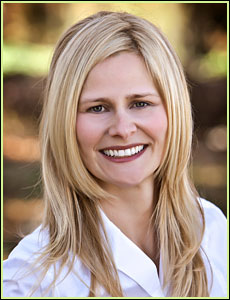Toothaches occur when the nerve root of a tooth is irritated and can be caused by an infection, gum disease, decay (cavities), or injury. If your child complains of a toothache, rinse his or her mouth with warm water and inspect the teeth to be sure there is nothing caught between them. If pain continues, use a cold compress to ease the pain. Do not apply heat or any kind of aspirin or topical pain reliever directly to the affected area, as this can cause damage to the gums. Children's pain relievers may be taken orally.
If the toothache persists, it is important to call their pedodontist to determine the cause of the pain and provide relief. Immediate contact should be pursued if your child experiences:
• Pain that is not be relieved by over-the-counter drugs
• Severe pain after a tooth is pulled which may be dry socket syndrome
• Pain associated with swelling of the gums or face, or discharge around a tooth, especially if accompanied by a fever
• Broken or knocked-out teeth from an accident or injury
Monday, March 26, 2012
Wednesday, March 21, 2012
The Scoop on Dental X-rays
Dental X-rays are an essential and invaluable
tool to help assist us in evaluating your oral health. With X-rays,
we can see what’s happening beneath the surface of your teeth and gums and
identify oral health issues otherwise hidden during a visual exam, including:
·
small areas of
decay between the teeth or below existing restorations (fillings)
·
infections in the
bone
·
periodontal (gum)
disease
·
abscesses or cysts
·
developmental
abnormalities
·
types of tumors
If left untreated, these problems can
lead to expensive, time-consuming, and painful conditions, so it’s important to
find and treat them early.
Dental X-rays are extremely safe, and our
team is certified in the proper use of our digital X-ray equipment.
The amount of radiation that you are exposed to from dental X-rays is very
small compared to your daily exposure from things like atmospheric radiation
and naturally-occurring radioactive elements, as well as medical X-rays you may
have gotten at your doctor’s office or hospital. In fact our digital
system dramatically decreases the already minimal amount of exposure even
further. We try to be as conservative as
possible when prescribing x-rays but do need them to see what is
going on where our eyes can't see.
Monday, March 12, 2012
Connect with us on Facebook!
We will be rolling out our new Facebook Timeline page soon and would love for you to check it out!
You’ll find all the useful information that was there before, but now in a fun, new layout. When you Like us on Facebook, you’ll be able to check out photos of our office, find out about new events and contests, or you can even leave a note about how much you enjoyed your visit at our office. We love hearing your feedback to make our practice serve you and your family even better. To make life even easier, if you “Like” us on Facebook, you’ll automatically receive updates from our office right on your own news feed!
See you on Facebook!
You’ll find all the useful information that was there before, but now in a fun, new layout. When you Like us on Facebook, you’ll be able to check out photos of our office, find out about new events and contests, or you can even leave a note about how much you enjoyed your visit at our office. We love hearing your feedback to make our practice serve you and your family even better. To make life even easier, if you “Like” us on Facebook, you’ll automatically receive updates from our office right on your own news feed!
See you on Facebook!
Wednesday, March 7, 2012
March is National Nutrition Month!
March has arrived, and that can only mean one thing: it’s National Nutrition Month. Every March, Dr. Mark Morrow, Dr. April Lai, and Dr. Kerry Edwards and thousands of dentists and hygienists celebrate this occasion, and this year is no different. This March, we want you to think about diabetes, obesity and periodontal disease, and how healthful eating and physical activity may improve periodontal health.
Small changes really can make a big difference, and the American Dietetic Association (ADA) has some advice on ways to start improving your diet this March:
• Focus on fruits and vegetables: Add a serving each day to one meal and increase it every few weeks. Adding more of these foods into your diet is important whether you buy frozen, fresh or organic.
• Think fresh, think local: From farmer’s markets to community-supported agriculture, you have many options to find new, fresh foods in our city.
• Make each and every calorie count: When you are choosing between options, focus instead on the one with more of the vitamins and nutrients that you need. Sometimes, foods with fewer calories aren’t always the healthiest options.
• It’s tempting, but…: If you have a sweet tooth, have fruit and yogurt for dessert. If you crave a snack in the afternoon, enjoy some trail mix or nuts.
• Expand your horizons: Try a fish you’ve never eaten before or find a new vegetable recipe. By testing yourself, you might find new healthy favorites to add to your regular grocery list.
If you have additional questions about periodontal disease or keeping yourself and your mouth healthy, please give us a call!
Small changes really can make a big difference, and the American Dietetic Association (ADA) has some advice on ways to start improving your diet this March:
• Focus on fruits and vegetables: Add a serving each day to one meal and increase it every few weeks. Adding more of these foods into your diet is important whether you buy frozen, fresh or organic.
• Think fresh, think local: From farmer’s markets to community-supported agriculture, you have many options to find new, fresh foods in our city.
• Make each and every calorie count: When you are choosing between options, focus instead on the one with more of the vitamins and nutrients that you need. Sometimes, foods with fewer calories aren’t always the healthiest options.
• It’s tempting, but…: If you have a sweet tooth, have fruit and yogurt for dessert. If you crave a snack in the afternoon, enjoy some trail mix or nuts.
• Expand your horizons: Try a fish you’ve never eaten before or find a new vegetable recipe. By testing yourself, you might find new healthy favorites to add to your regular grocery list.
If you have additional questions about periodontal disease or keeping yourself and your mouth healthy, please give us a call!
Subscribe to:
Posts (Atom)









